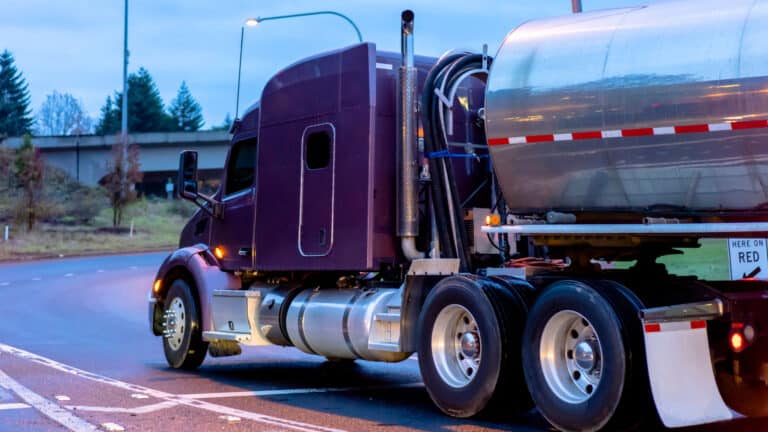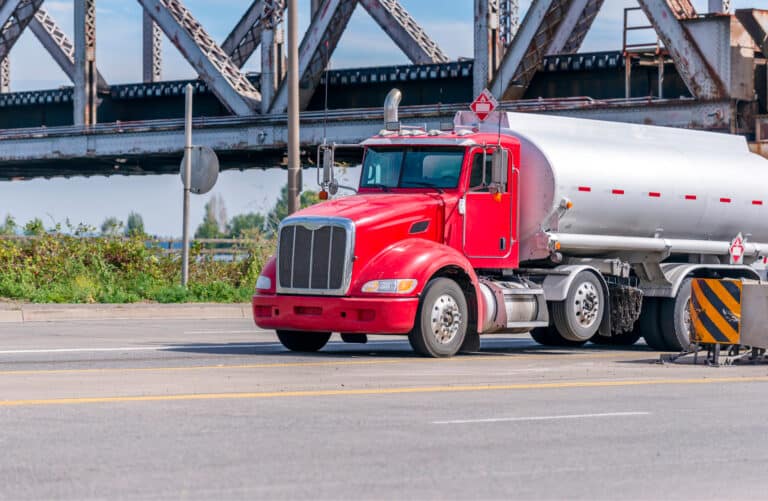In the trucking industry, staying compliant with the Department of Transportation’s ELD mandate and hours of service (HOS) rules is not just a legal requirement but a key to operational efficiency. The evolution of these regulations has led to a greater reliance on technology to maintain compliance and operational efficiency, but you might be facing challenges with your current ELD that hinder productivity and satisfaction. If that is the case, choosing a better electronic logbook is essential for smooth operations, fewer disruptions, and successful trucking. At HOS247, we understand truckers’ needs and offer a reliable and efficient solution. This article delves into the significance of electronic logbooks in aligning with federal regulations and offers guidance on selecting a system that not only fulfills legal requirements but also enhances day-to-day trucking operations.
Why Do I Need an ELD?
As a trucker, complying with the DOT mandate is a regulatory requirement most have to fulfill. Let’s delve into why electronic logs are a necessary tool for maintaining compliance and the role they play in modern trucking:
- Regulatory compliance. The primary purpose of ELDs is to ensure adherence to the federal DOT hours of service rules. By automatically recording driving hours and duty status, they eliminate the need for paper logs, reducing the risk of errors, inaccuracies, and falsification.
- Mitigating penalties and fines. Non-compliance with HOS and ELD regulations can result in hefty fines and penalties for both drivers and carriers. Reliable elogs provide a means of demonstrating compliance during roadside inspections. With accurate electronic logs and supporting documents readily available, drivers can avoid penalties and potential out-of-service orders.
- Audit preparedness. In the event of an audit, ELDs provide detailed electronic logs and supporting documents, readily accessible to drivers and fleet managers. The availability of accurate and organized data simplifies the audit process, reducing stress and potential disruptions to operations.
Truckers are obligated by law to utilize electronic logbooks to ensure compliance with the DOT ELD mandate. However, beyond mere compliance, a dependable logbook goes a step further by enabling truckers to meet these requirements effortlessly, allowing them to focus on more critical tasks.
Do you have any questions? Talk to ELD Advisor: 650-405-3372 or Request Callback
What Are The DOT ELD Requirements?
ELD requirements in the United States are crucial for commercial drivers and motor carriers to understand and comply with. Here’s a summary:
- Mandate. Commercial drivers required to prepare HOS records of duty status (RODS) must use electronic logging devices.
- Standards and certification. ELDs must meet specific performance and design standards and be certified and registered with the Federal Motor Carrier Safety Administration (FMCSA).
- Documentation. Drivers and carriers are required to keep supporting documents. This includes a user’s manual, an instruction sheet for data transfer, a malfunction report guide, and a supply of blank driver’s RODS graph-grids for at least 8 days.
- Prohibition of harassment. The law protects drivers from harassment based on ELD data or connected technology and provides recourse for drivers who believe they have been harassed.
- Onboard documentation. Drivers must have an information packet on how to operate the electronic logbook onboard the vehicle. The information packet can be in electronic form.
- Smartphone or wireless device use. Electronic logs can be on a smartphone or other wireless devices if they meet the ELD rule’s technical specifications.
- Portable devices. Drivers may use portable elogs as long as they are mounted in a fixed position during operation and visible to the driver.
- Data retention. Motor carriers must retain RODS data and back-up data for six months.
Motor carriers must ensure that the ELDs they use are registered with the FMCSA. It’s important to regularly check the list of registered and revoked ELDs to ensure compliance. When selecting an ELD, factors like cellular connectivity, the number of vehicles managed, and software updates should be considered.

What Are the Current DOT Hours of Service Regulations?
As of 2024, the current HOS regulations in the United States for commercial drivers are as follows:
- 14-hour driving window. Drivers are allowed a 14-hour window to drive up to 11 hours after being off duty for 10 consecutive hours.
- 11-hour driving limit. Within the 14-hour window, drivers can drive up to 11 total hours.
- Rest breaks. Drivers must take a 30-minute break if they have driven for 8 cumulative hours without a break of at least 30 minutes.
- 60/70-hour limit. Drivers are limited to 60 hours on duty over 7 consecutive days, or 70 hours over 8 days.
- Sleeper berth provision. Drivers using the sleeper berth provision must take at least 8 consecutive hours in the sleeper berth, plus a separate 2 consecutive hours either in the sleeper berth, off duty, or any combination of the two.
- Short-haul exemption. Short-haul drivers (those who operate within a 150 air-mile radius and return to the starting point within 14 hours) are exempt from maintaining a RODS and using an ELD.
An efficient electronic logbook should offer user-friendly features that empower truckers to streamline their operations and transform the burden of HOS compliance into a competitive advantage. Is your provider doing that for you?
Is Time To Switch ELD Providers?
To determine if it’s time to switch to a better electronic logging system, it’s important to assess the limitations of your current electronic logbook. By identifying these shortcomings, you can make an informed decision and find a solution that addresses your specific needs. Here are some frequent issues truckers face with their elogs:
- Inefficient customer support and assistance. Prompt and reliable customer support is crucial when you encounter ELD or compliance issues. If you’ve experienced delays, unresponsive teams, or inadequate assistance, it might be time to switch to a provider with better customer support.
- Complex software. Many drivers struggle with complex user interfaces and unintuitive navigation in their current electronic logging systems, which can lead to errors. If you find yourself constantly frustrated with the user experience of your current logbook, it’s a sign that a more user-friendly option should be considered.
- Performance concerns. Frequent connectivity issues, software glitches, or device malfunctions disrupt your workflow and raise compliance concerns. If you cannot rely on your electronic logbook to perform consistently, you might be better off with a different service provider.
- Limited flexibility. If your current system feels rigid and unable to accommodate your evolving needs, it’s time to explore alternatives that offer greater flexibility and scalability.
By recognizing the limitations of your current electronic logging system, you can determine the areas where it falls short and prioritize the features and capabilities you need in a new electronic logging solution. In the next section, we’ll introduce you to HOS247 and demonstrate how it addresses these common pain points to provide a superior ELD experience.

HOS247: A Dependable ELD Solution for Your Trucking Business
If you are not satisfied with your current electronic logbook and are searching for a better alternative, look no further than HOS247. As a leading provider of electronic logging devices, HOS247 offers a comprehensive solution to facilitate DOT HOS compliance and boost operations. Let’s explore how we can provide a superior ELD experience:

- Reliability. At HOS247, reliability is our foundation. We understand the critical role that electronic logging devices play in enhancing compliance and operational efficiency for trucking businesses. Our devices undergo thorough testing to ensure high-quality performance and dependability. With HOS247, you can have peace of mind knowing that your ELD will consistently deliver accurate data and reliable performance.
- Intuitive and User-Friendly Interface. One of the key frustrations with some ELD systems is the complexity of their user interfaces. HOS247 understands the importance of a seamless user experience, which is why our software is designed with simplicity and ease of use in mind. Our intuitive interface allows you to navigate effortlessly, input data quickly, and access the information you need without any unnecessary complications.
- Top-Rated Support. When it comes to customer support, HOS247 stands out from the rest. Our technical support team is renowned for its responsiveness and expertise. Whether you have a question, encounter an issue, or need troubleshooting assistance, we are here for you. Our multilingual support is available in English, Spanish, Polish, and Russian, ensuring clear communication and comprehensive assistance. With HOS247, you can rely on top-rated support to keep your operations running smoothly.
- Seamless Data Transfer and Connectivity. Connectivity issues and data transfer problems can be major obstacles when using ELDs. HOS247 has overcome these challenges by developing a robust system that ensures stable Bluetooth connectivity and accurate data transmission. Whether you’re on the road or in the office, you can rely on our solution to seamlessly sync data between the device and your back-office or compliance systems.
- High-Quality Hardware and Dedicated Support. In addition to our advanced software, HOS247 provides reliable hardware that withstands the demands of the trucking industry. Our durable devices are built to last and deliver consistent performance. Should you have any questions or encounter technical issues, our dedicated support team is available seven days a week to assist you promptly. We pride ourselves on delivering top-rated support and ensuring your ELD experience is smooth and hassle-free.
- Transparent Pricing and No Contracts. We believe in transparency and simplicity when it comes to pricing. With HOS247, you’ll find straightforward pricing information without any hidden fees or long-term contracts. We offer flexible subscription plans that cater to businesses of all sizes, from owner-operators to large fleet owners. You can choose the plan that best fits your needs and budget, without being tied down to lengthy commitments.
- Customizable Plans. HOS247 offers subscription plans that can be tailored to your specific needs. Our system provides IFTA calculation capabilities, real-time tracking, idle reporting and more. With HOS247, you have the flexibility to customize your ELD monthly subscription plan to match your requirements.
By choosing HOS247 as your ELD provider, you gain access to a reliable, customer-centric solution backed by top-rated support. Truckers can navigate the roads confidently, knowing that they are not only meeting regulatory demands but also optimizing their operations for success in the trucking industry. Get ready to discover the difference that HOS247 can make for your trucking business.
Frequently Asked Questions About HOS247’s ELD Solution

Q: Is HOS247’s ELD logbook compliant with DOT ELD requirements?
A: Absolutely. HOS247’s ELD solution has been thoroughly tested and is fully compliant with the regulations set forth by the DOT ELD mandate, and our software is constantly improved and updated to support current DOT hours of service regulations.
Q: Is HOS247’s ELD app compatible with iOS and Android devices?
A: Yes, our user-friendly mobile app can be easily installed on your preferred iOS or Android device, offering flexibility and convenience.
Q: What kind of support does HOS247 provide?
A: Our dedicated support team is available seven days a week to assist you with any questions, technical issues, or troubleshooting needs you may have. We have also developed an extensive online knowledge base and tutorials for our customers.
Q: What sets HOS247 apart from other providers?
A: HOS247 stands out for its commitment to customer satisfaction, reliability, user-friendly interface, top-rated support, and flexible pricing. We prioritize the needs of truckers, offering a comprehensive solution that addresses pain points and streamlines operations.
Take the next step in upgrading your electronic logbook. Contact HOS247 today to learn more about how our system can benefit your trucking business and address your specific needs. Our team is ready to assist you on your journey to enhanced compliance, efficiency, and success.

As an expert in B2B and B2C sales, I’ve dedicated myself to perfecting sales processes and client retention strategies in the logistics and trucking industry. I have significantly contributed to the expansion of the ELD service, catering to retail and wholesale clients in need of HOS247 ELD solutions. My unwavering commitment to implementing state-of-the-art sales techniques and technologies ensures the continuous growth and success of businesses I work with.










Since the implementation of the ELD mandate in 2019, finding a reliable electronic logging device has become crucial for truckers operating in the United States. The law requires motor carriers and CMV operators to use electronic logbooks to record their

The main requirement for any elog system is RODS compliance. However, there are many other factors that turn out to be crucial when looking for a reliable provider. In this article, we discuss some situations that indicate you might be

Vehicle Log Book App for Android and iOS Electronic logging devices are a legal requirement for commercial drivers. They are also useful to streamline operations, stay on top of fleet maintenance, and save carriers time and money. An essential part